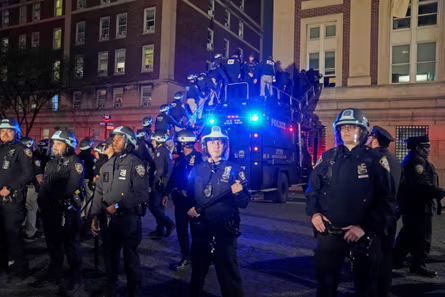More than four million UK households are in serious financial difficulties and have resorted to buying lower-quality food, selling possessions and cutting back on showers to make ends meet.
A new report found that an additional 1.6 million households reported being in financial difficulty since October last year as the cost-of-living crisis worsened, The Independent reported.
Abrdn Financial Fairness Trust and the University of Bristol found that 4.4 million households are now struggling.
Households earning more than £100,000 a year were the only group who did not report an increase in serious hardship.
It shows that soaring inflation is hitting lower and middle-income families the hardest.
Most respondents are trying to tackle rising energy bills. Some are reducing the number of showers and baths they take and others are using the oven less.
Three fifths of respondents said they had avoided turning on the heating while a quarter (24%) said they heated only part of their home in efforts to cut costs.
While 71% said they have reduced the quality of food they eat, over a third (36%) have sold or pawned possessions and 27% have cancelled or not renewed insurance policies.
The survey of around 6,000 people between May 25 and June 6 shows the real-world impact on living standards as wages fail to keep pace with the rate of inflation, squeezing hard-pressed families.
“This is the first substantial deterioration we have seen since tracking people’s finances when the pandemic started,” said Abrdn Financial Fairness Trust boss Mubin Haq.
“Wages have largely stagnated and are no longer keeping pace with inflation; and social security is lower in real terms than it was over a decade ago,” Haq added.
“A more comprehensive and longer-term plan is urgently needed to ensure living standards do not sink even further,” he said.
Many families lost household income during the pandemic as they changed jobs, were made redundant, or had to take furlough.
Despite this, the hit to households in recent months has been worse, the survey suggests.
The cost-of-living crisis is hitting some groups harder than others. Single parents, renters and parents with two children are facing the greatest rise in financial difficulty.
There are also regional disparities as households in Wales, Scotland, and the North East of England report higher levels of serious financial difficulty than the UK average.
Experts warn government support measures – like the £150 council tax rebate announced in March – may not be reaching those who need it the most.
The survey found a similar proportion of households in serious financial difficulties reported receiving the rebate as those feeling financially secure, at 40% compared to 41%.
“Times are tough for everyone, but it’s those on the lowest incomes who are particularly feeling the effects of rising prices,” Haq said.
A Government spokesperson said, “We understand that people are struggling with rising prices which is why we have acted to protect the eight million most vulnerable British families through at least £1,200 of direct payments this year with additional support for pensioners and those claiming disability benefits.
“Through our £37 billion support package we are also saving the typical employee over £330 a year through this month’s National Insurance cut, allowing people on Universal Credit to keep £1,000 more of what they earn and cutting fuel duty by 5p – the biggest ever cut to fuel duty rates which saves a typical family £100,” the spokesperson added.
It’s amid, More than one in 10 students are using food banks because they cannot make ends meet during the cost-of-living crisis, according to a survey.
The survey of more than 3,500 university students by the National Union of Students (NUS) found that 96% were cutting back as a result of the crisis, with one in five unable to buy toiletries and one in 10 unable to buy sanitary products when needed.
A third of students were living on less than £50 per month after paying rent and bills, the survey found.
Huge increases in the price of bills, food and living costs coupled with soaring rent has students on the brink. Huge increases in the price of bills, food and living costs coupled with soaring rent has students on the brink.
Four in 10 (42%) said they are unable to make it on to campus or are being forced to travel less, and 41% were neglecting their health so that they could save money, for example through missing out on dental appointments.
Nine in 10 (92%) said the crisis was impacting their mental health, with nearly a third (31%) saying that rising costs were having a “major” impact.
Just a fifth (20%) of students said they had received any support from the UK Government or their devolved government and only 8% said they felt their government was doing enough to support them.
READ ALSO: US: Biden pledges to ‘reorient’ relations with Saudi Arabia
Students reported that their maintenance funds were not enough to pay for a weekly shop, travel to their university or cover energy bills.
The data also revealed a cost-of-learning crisis, with three-quarters of students saying they would be unable to pay for course materials without more support.
Eight in 10 (83%) students had sought financial support through other means, such as using credit cards, buy now and pay later credit schemes such as Klarna, or taking out bank loans.
Half (53%) of students said they had turned to family and friends for support, while 40% had reached out to them for loans.
A third of students said the cost-of-living crisis had also impacted their families.
The survey found that 11% were using food banks, up from 5% in January 2022.
Students with caring responsibilities, disabilities, those who are estranged from their families, and those from poorer backgrounds have all been affected more by the crisis.
An NUS spokesperson said, “Huge increases in the price of bills, food and living costs coupled with soaring rent has students on the brink.”
“We’re hearing from students struggling to get by, who can’t afford to do their laundry and are cutting back on showers to make ends meet. They can’t even cover the cost of getting to the library or classes,” the spokesperson added.














